Aussie mum moves overseas due to debilitating skin issue
An Aussie mum is desperate to come home after moving overseas due to a debilitating skin condition which is set off by the Australian climate.
WARNING: Graphic content
An Aussie mum is desperate to come home after moving overseas due to a debilitating skin condition which is set off by the Australian climate.
Faye Haines, from Newcastle, NSW, has been suffering from eczema since she was a baby. The 52-year-old said her chronic issue has made her “exhausted”.
“The constant itchiness, relentless scratching, and dealing with severely damaged skin have become all-consuming for me,” she told news.com.au.
“My skin is intensely itchy, sore, cracked, burning, peeling, oozing, I can’t stop scratching, weeping open sores, bleeding – my clothes and bedsheets are always covered in blood.
“I am vacuuming huge amounts of skin flakes off the floor. I am covered from head to toe in eczema.
“It is on my scalp, my palms, even the bottoms of my feet. In really bad flares it thins my hair and I lose my eyebrows.
“It is exhausting and the sleep deprivation from the constant itching and pain is debilitating.”
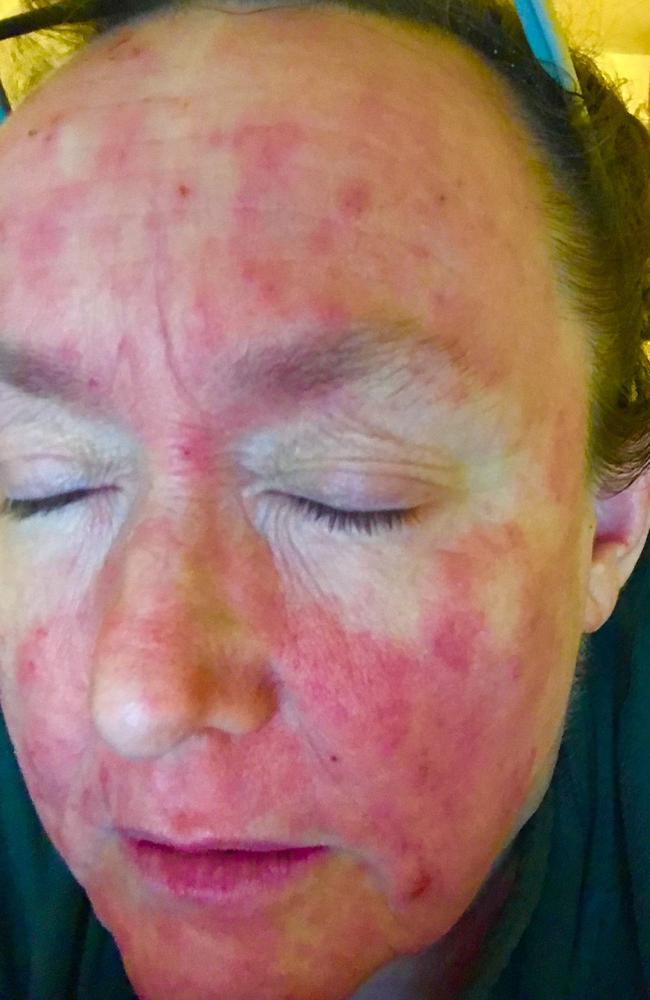
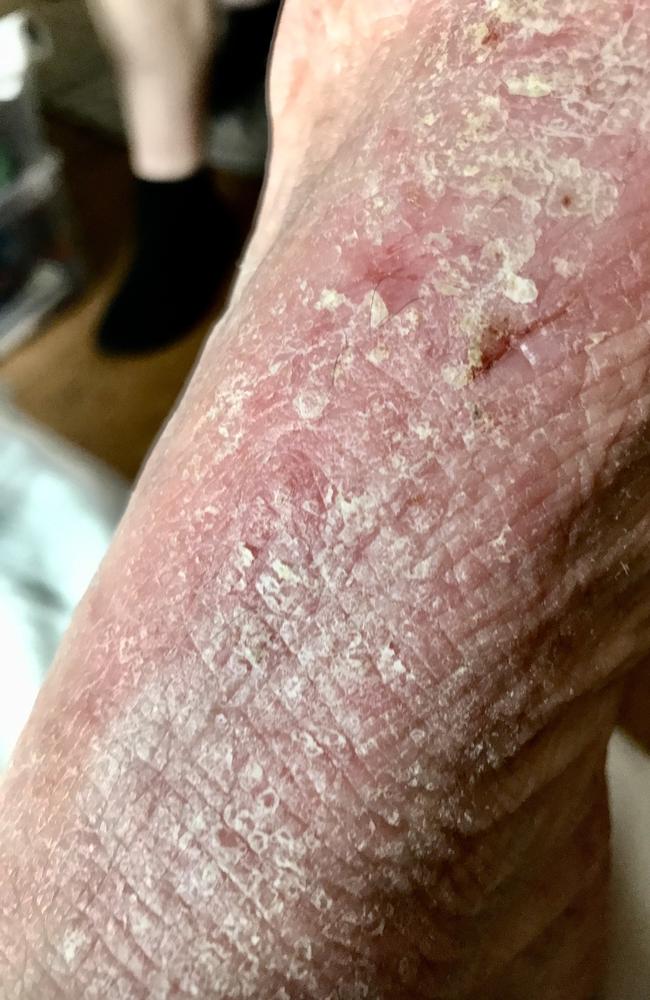
The mother of one’s eczema is so severe, she can’t shower or swim or exercise during a bad flare.
“It means I can’t sleep either, so I’m constantly sleep-deprived – I’ve barely slept for the last three years,” she said.
“At its worst, I shed so much skin like it’s snowing and have to vacuum it up a few times a day.”
Faye has been hospitalised over 20 times throughout her life with her longest stay being 6 weeks.
One of her treatments consists of wearing wet bandages a couple of times a day. During bad flare ups, she has to wear the wet wraps from head to toe every two hours.
“The wet wraps help to calm the severe itch and pain and rehydrate and calm the skin. They also help the other medications work,” she said.
“My husband helps me put all my creams on all over my body and then I soak either special eczema body suits or just white cotton clothing in warm water and put that on top of my skin and then he will wrap me in gauze on top as the dry layer.
“I also have bleach baths to help stop the infection or oat baths to cure the itch.”
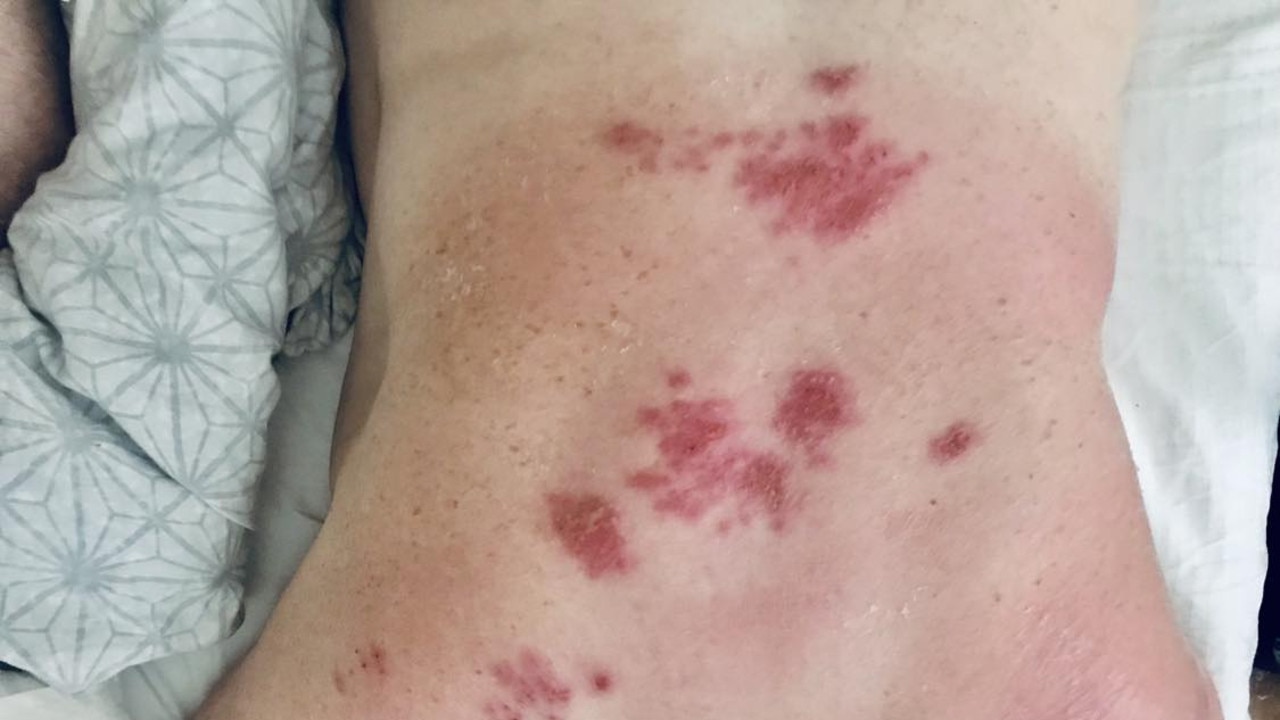
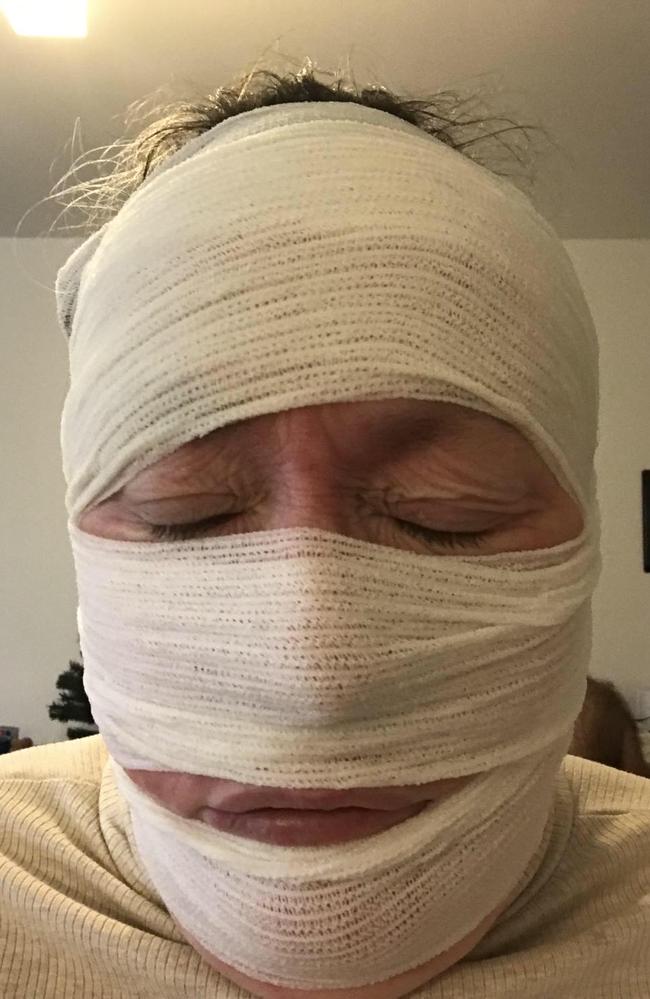
Faye said whenever she leaves Australia, her skin improves. In her 20s, her doctor advised her to move to another country that her skin could tolerate.
“I moved to the UK, even though it meant living away from family and friends for over 20 years,” she said.
“My skin seemed to love the wet UK climate, but it eventually started to react to the UK.”
Currently living in Greece, Faye said the country has helped her skin.
“I can have a shower, I can go swimming, I can wear shorts, I can wash my hair standing up and not have to get my husband to wash it over the sink,” she said.
While her condition has improved, Faye misses Australia and wants to come home.
“I’m desperate to come back to Australia as I need to spend time with my family and elderly parents who I have not seen for over four years,” she said.
“I’m hoping I can come back this year, but am worried about how it will affect my skin.”
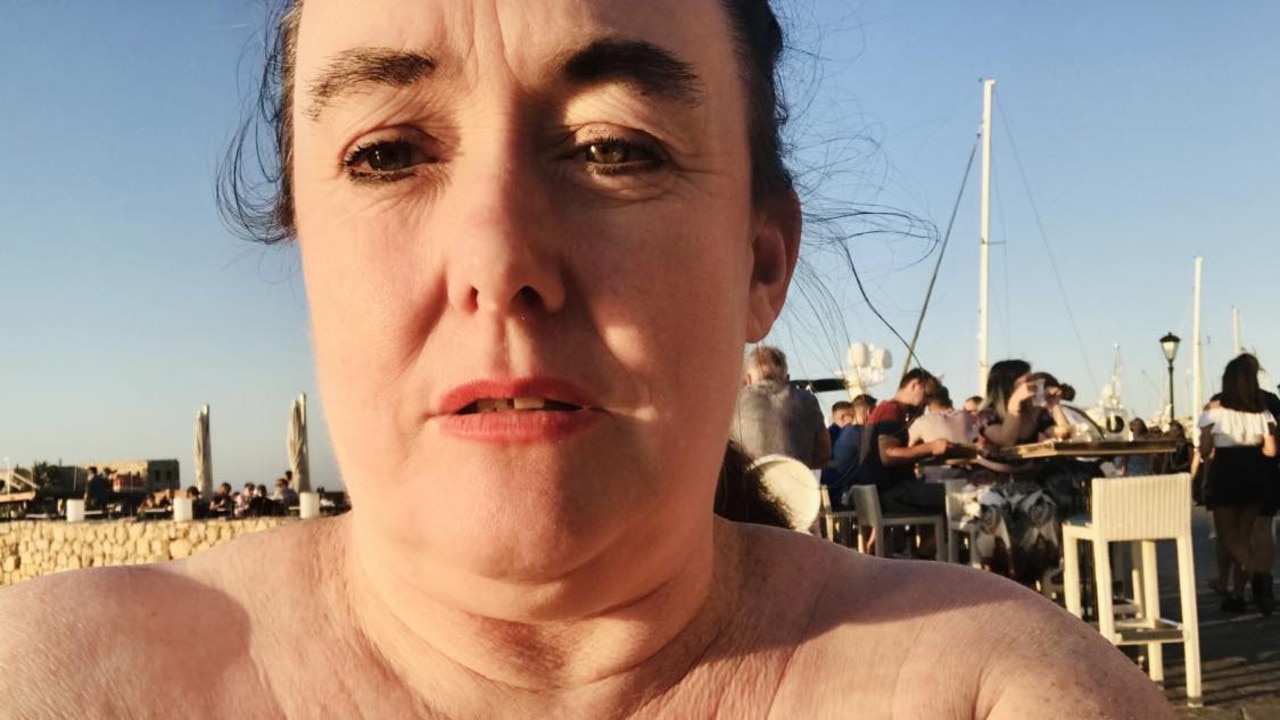
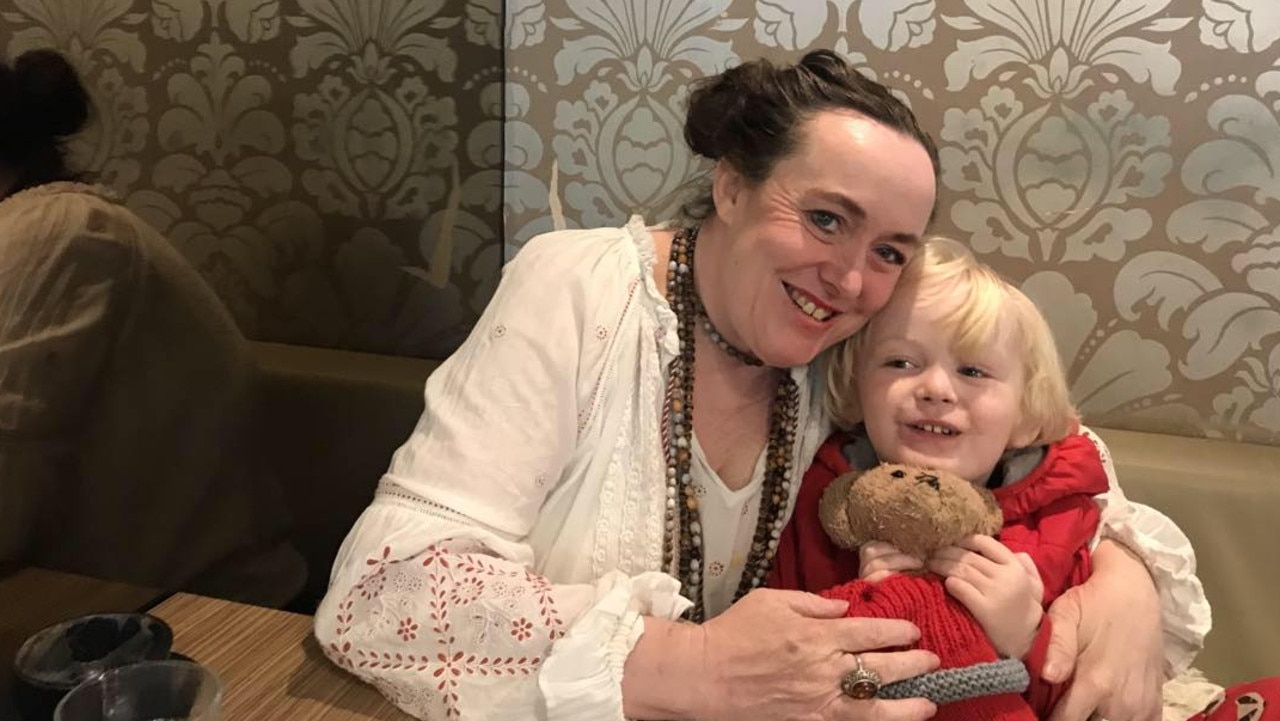
Suffering from eczema since her early years, a then-teenage Faye was on such heavy steroid use for her skin that she developed severe steroid-induced depression.
“Back then I was on 70-100 mg a day which is a crazy high dose for a child/teenager,” she said.
“I was on such heavy steroid use for her skin as a teenager I was 50 kilos aged 16.
“I had severe depression, intense fatigue, malaise, couldn’t concentrate, memory gaps, memory issues: cognition, difficulty with concentration, severe mood swings.
“I was never warned by doctors about the possibility of adverse side effects.
“I couldn’t think straight. The side effects were not monitored.”
With no help, Faye dropped out of school. She said the lack of support destroyed her education.
“Many people underestimate the severe impact eczema has on the quality of your life, dismissing it as ‘just an itch’,” she said.
“The constant itchiness, relentless scratching, and dealing with severely damaged skin have become all-consuming for me.
“It has significantly impacted my ability to work, study, or even enjoy social interactions.
“Living with eczema and allergies is isolating, extremely stressful, and exhausting, both physically and emotionally.
“You are stigmatised for what you look like. Prolonged, severe, sleep deprivation and ongoing pain, all take their toll.”
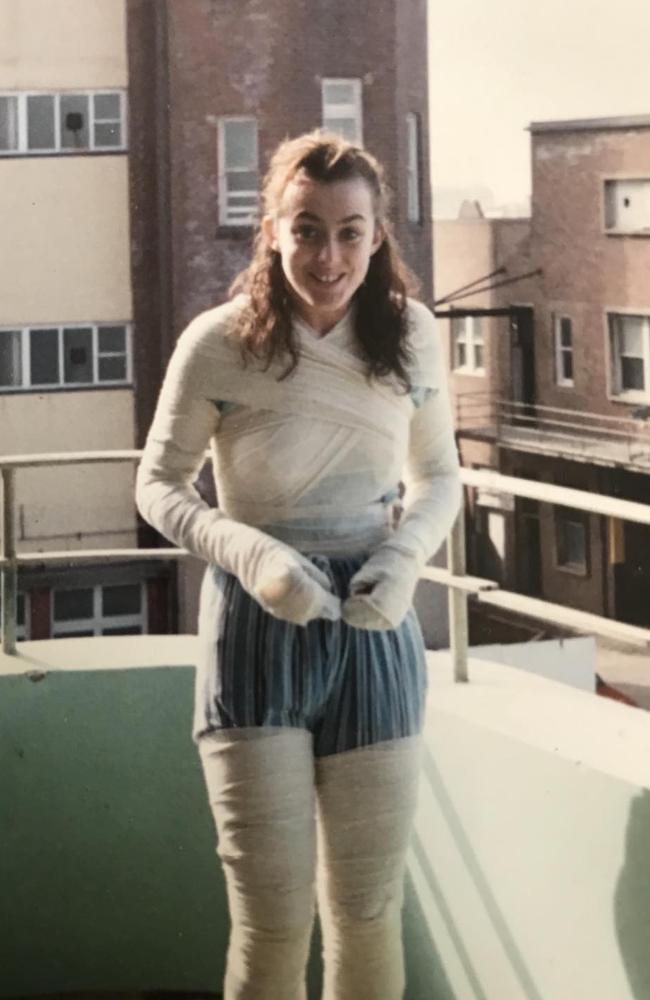
Australia has one of the highest cases of eczema in the world, with data showing nearly one-third of Australians will suffer from the skin condition at some stage in their lives.
The Eczema Association of Australia (EAA) found more than half of current eczema sufferers describe their condition as “chronic”, and 72 per cent say weather is the biggest trigger for flare ups.
Melody Livingstone, CEO of skincare brand MooGoo which specialises in treating sensitive skin and conditions like eczema, has seen a dramatic rise in the number of people seeking treatment for their skin.
She said sales of MooGoo eczema creams and moisturisers have spiked 32 per cent in the last few months and orders doubled compared to what they were this time last year.
“We’re selling an eczema cream every two minutes,” Ms Livingstone said.
“It’s been challenging to meet demand, but we’ve been managing to keep up.”
Despite eczema becoming more common, Ms Livingstone said there’s still surprisingly little understanding around how to manage the skin condition.
“In conditions like eczema, there is no cure for them,” she said.
“It often requires this constant management of that skin condition and it can be quite visible so you can get it on your face, your hands, feet and it really impacts self-confidence.
“People often don’t go to work, or won’t go to school because they’re just afraid of their appearance and so that really does take a toll on their mental health and well being.
“When you’re struggling with a condition like eczema, people often hide it. They don’t want to talk about it and it can be a constant struggle.
“It really does dramatically impact someone’s well being.”
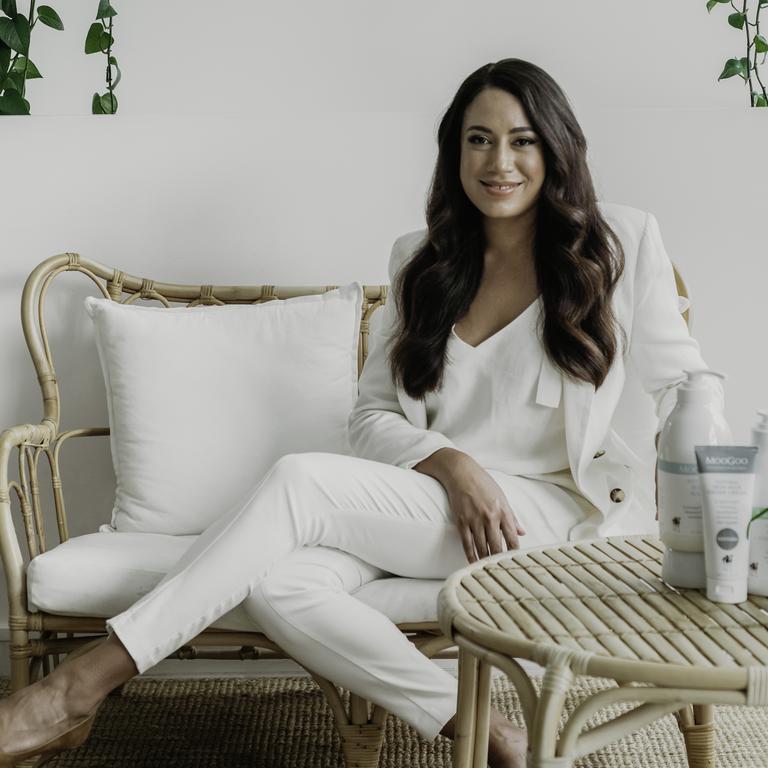
Ms Livingstone said the skin has a protective barrier and if it’s broken it’s susceptible to infection.
“If you have eczema, you have very sensitive skin and it will react to many things, including the weather, so it’s really important to protect your skin barrier,” she said.
“One of the ways you can do that is we recommend using a healthy moisturiser like MooGoo because we have ingredients that don’t just sit on the skin and provide a coating.
“It’s nourishing and feeding the skin which is what the skin needs.
“It’s really helping maintain a really good and strong skin barrier, which is one of the reasons why if they can maintain that, it helps limit those flare ups.
Ms Livingstone has some advice to help manage eczema and skin irritation:
- Consult with a healthcare professional to identify any environmental, dietary or other allergens that may be contributing to your skin problem
- Avoid harsh soaps, foaming agents, fragrances and preservatives in skincare
- Keep skin moist and apply fragrance-free products straight after bathing
- Check washing detergent for sulfates and other skin irritants
- Reduce the heat of showers and baths, as it can strip natural oils from skin and further irritate it
- Reduce or avoid sugar and yeast and eat oily fish, vitamin A and E rich foods and omega-3 rich foods like flaxseeds and walnuts
- Use a probiotic that contains the lactobacillus rhamnosus strain
- Keep a food diary and note when flare-ups occur






